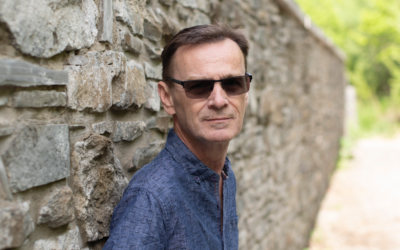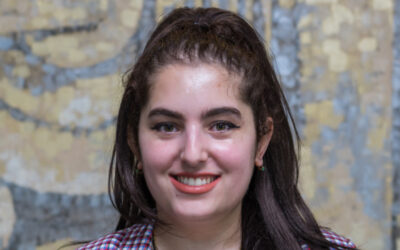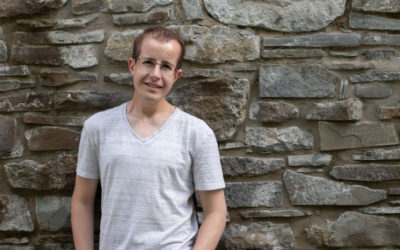What happened to you?
It’s a question that seems to follow me wherever I go and one I still don’t know how to answer. As a child, I would always reply with a vague truth and then promptly change the subject or excuse myself. Nowadays, I more or less do the same thing.
I was diagnosed with acute lymphocytic leukemia at two years old. Partway through chemotherapy, I lost the mobility in my legs and didn’t take another step for a year. I was later diagnosed with transverse myelitis, characterized by lower limb weakness and spasticity, which I have been living with for over 17 years. I don’t have a single memory of my battle with cancer.
“My physical disability already defined me, and I didn’t want my cancer to define me as well.”
It always frustrated me that the nature of my disability meant that I could not hide it from others. I was a fiercely private person — I still am—and the fact that I’d had cancer was tantamount to my deepest darkest secret. I hardly ever told anyone, and if I did on a whim, I would always, without fail, regret doing so afterwards. I didn’t want people to know, didn’t want to give away more pieces of myself. My physical disability already defined me, and I didn’t want my cancer to define me as well.
Growing up with a physical disability was not easy, to say the least. My parents were overprotective (understandably so), and while they never denied me any opportunity, I was more sheltered than other kids my age. I was simultaneously more independent than many other kids with physical disabilities and far less independent than those who were able-bodied.

My parents did, however, let me run wild during the summer months. From the ages of 7 to 18, I spent several weeks every summer at sleep away camps with other children affected by cancer. These camps were safe spaces in which I could discover and challenge myself, and also connect with other kindred spirits. I really credit my camp experiences in shaping me as a person and I recognize that I’m incredibly lucky to have been given such opportunities.
… “the amount of resources available to childhood cancer survivors decrease considerably once we turn 18.”
Unfortunately, the amount of resources available to childhood cancer survivors decrease considerably once we turn 18. While summer camps provide emotional support throughout childhood, they cannot help as much with the transition into adulthood and all the changes it entails, such as entering post-secondary, finding a job, starting a relationship, and so on. And the organizations that can help with these rites of passage are often quite impersonal. That’s where CCSC comes in; it’s a brilliant initiative created by survivors for survivors, and I’m excited to be a part of it.
I have a healthier outlook on life now than I did a few years ago. Yes, living with a physical disability is all I have ever known. Yes, life hasn’t always been easy. But I’m still here, and I’m slowly learning how to share my survivorship journey.
I try not to think about who I would be if I’d never had cancer—try not to jump on the ‘What if? train’. In my experience, it’s very hard to get off of and a poor use of energy. These are the cards I’ve been dealt; this is who I am in the world.
I’m accepting it — embracing it — more and more every day.
Victoria
Toronto, Ontario



